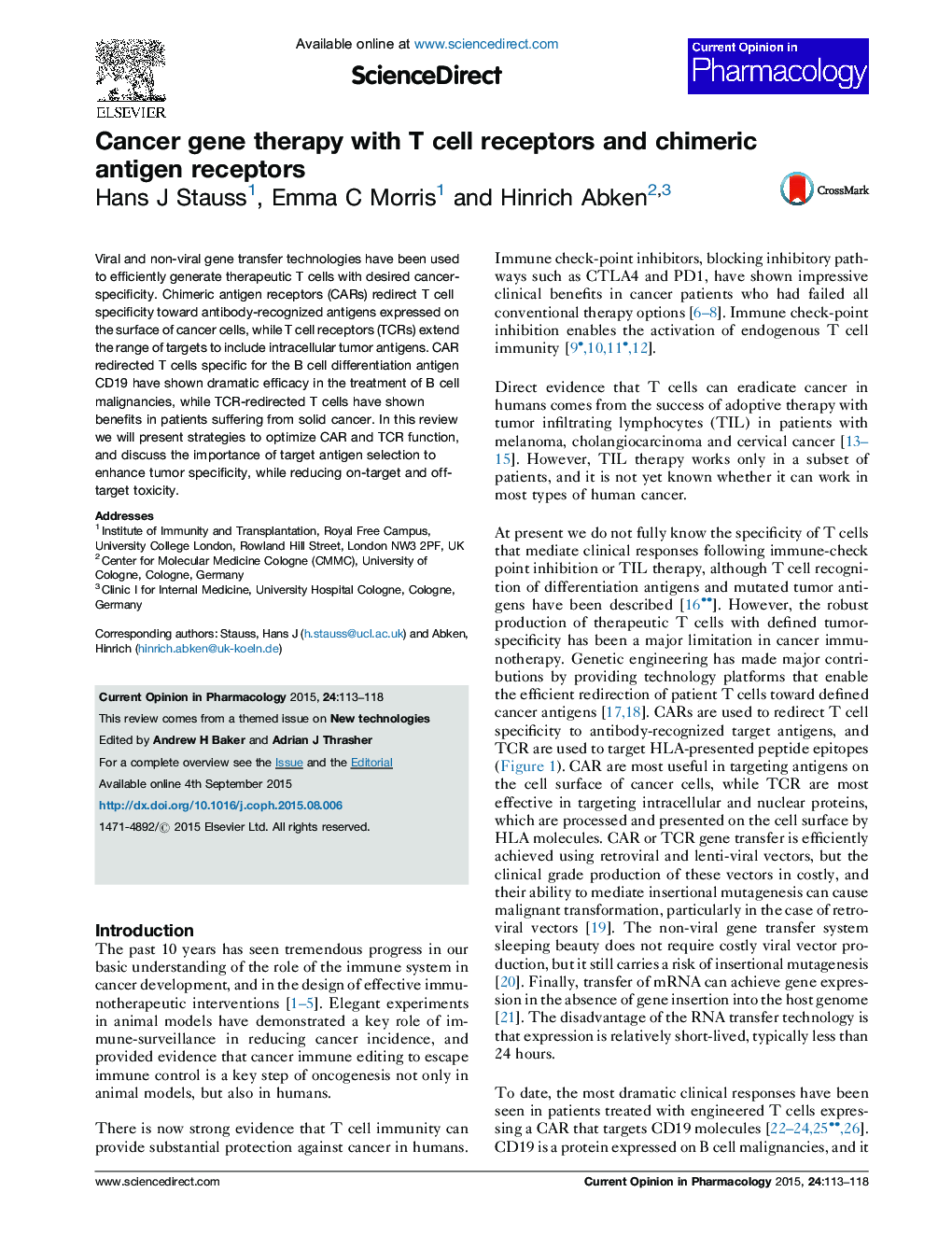| Article ID | Journal | Published Year | Pages | File Type |
|---|---|---|---|---|
| 2529798 | Current Opinion in Pharmacology | 2015 | 6 Pages |
•Success of adoptive T cell therapy in the treatment of cancer.•Gene engineering as platform to produce therapeutic T cells.•T cell receptor gene therapy to generate cancer-specific T cells.•Chimeric antigen receptor therapy to target antibody recognized cancer antigens.
Viral and non-viral gene transfer technologies have been used to efficiently generate therapeutic T cells with desired cancer-specificity. Chimeric antigen receptors (CARs) redirect T cell specificity toward antibody-recognized antigens expressed on the surface of cancer cells, while T cell receptors (TCRs) extend the range of targets to include intracellular tumor antigens. CAR redirected T cells specific for the B cell differentiation antigen CD19 have shown dramatic efficacy in the treatment of B cell malignancies, while TCR-redirected T cells have shown benefits in patients suffering from solid cancer. In this review we will present strategies to optimize CAR and TCR function, and discuss the importance of target antigen selection to enhance tumor specificity, while reducing on-target and off-target toxicity.
